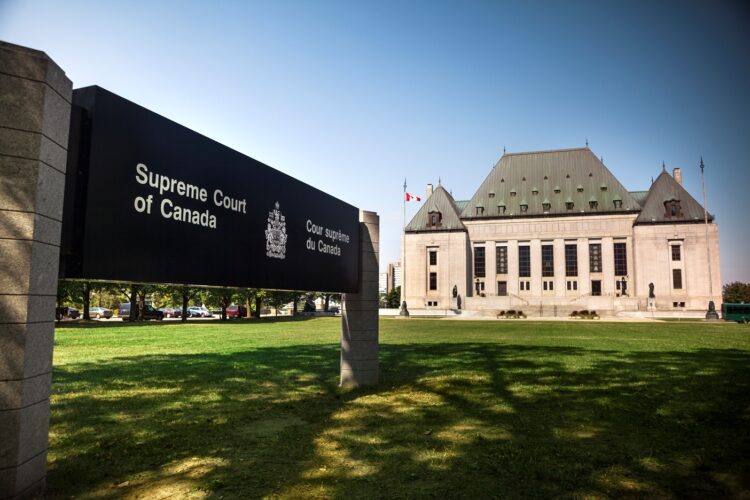Deceptive Silence and Good Faith Contractual Performance

On December 18, 2020, the Supreme Court of Canada released its decision in C.M. Callow Inc. v Zollinger et al, 2020 SCC 45 (“Callow”). In this decision, the Supreme Court sheds some further light on the duty of good faith contractual performance by examining what constitutes “active deception” and knowingly misleading another party about contractual performance.
Bhasin and the Duty of Good Faith
In 2014, the Supreme Court of Canada released its seminal decision in Bhasin v Hrynew, 2014 SCC 71. Through that decision, the Supreme Court articulated a duty of good faith as an “organizing principle”, meaning that in carrying out a contract, a contracting party should have “appropriate regard to the legitimate contractual interests of the contracting partner” and “not seek to undermine those interests in bad faith”. The Supreme Court also recognized a duty of honest contractual performance, as a separate freestanding duty.
Following this decision, much ink has been spilt by subsequent courts seeking to interpret and apply this organizing principle. In Callow, the Supreme Court has provided additional guidance respecting the duty of honest performance.
Background
In 2012, Callow entered into a two year contract to provide winter maintenance to the Baycrest condominium corporations such as snow removal. Under this contract, Baycrest had the right to terminate the winter maintenance if Callow failed to provide satisfactory service or with 10 days’ notice, “if for any other reason [Callow’s] services are no longer required for the whole or party of the property covered by this Agreement.” At the same time, Baycrest and Callow also entered into a separate contract for summer maintenance services.
Within the first year of the winter services agreement, Baycrest received complaints from occupants of various condominiums relating to Callow’s performance and was at one point advised by its property manager to terminate the agreement due to poor service. In March or April of 2013, Baycrest decided that it would be terminating its contract with Callow before the next winter.
Yet in the summer of 2013, Baycrest and Callow were discussing a renewal of this agreement. Even more, Callow continued to fulfill its obligations under the summer maintenance contract. In doing so, Callow performed work above and beyond its contract in the hopes of getting its contract renewed.
Ultimately, Baycrest terminated Callow’s services in September 2013 with 10 days’ notice and Callow commenced legal proceedings for breach of contract.
Trial and Appeal Decisions
The Ontario Superior Court of Justice agreed with Callow. Finding that Baycrest had determined that the contract would be terminated in March or April 2013, the trial judge concluded that Baycrest had breached its duty of honest performance. She found that it had “actively deceived” Callow by (1) withholding information to ensure Callow performed the summer maintenance services contract; and (2) continue to represent that the contract was not in danger despite knowing Callow was taking on extra tasks to bolster the chances of renewal. She awarded Callow damages for breach of this duty of honest performance.
Baycrest appealed this decision to the Court of Appeal, arguing that the trial judge had improperly expanded the duty of honest performance. The Court of Appeal agreed. It found that the duty of honesty did not impose a duty of loyalty or disclosure, or require a party to forego advantages flowing from the contract.
Callow sought and obtained leave to appeal from this decision to the Supreme Court.
The Supreme Court’s Decision
Directly at issue before the Supreme Court of Canada was what constitutes a breach of the duty of honest performance where a party has an unfettered, unilateral termination clause in its contract?
At the outset of the decision, the Supreme Court confirmed that the breach of the duty of honest performance must be linked to the performance of obligations under a contract or to the exercise of rights set forth in the contract. Writing for the majority, Justice Kasirer characterized this link as necessary to limit and control the scope of the duty of honest performance.
The Supreme Court also clarified what constitutes dishonesty for the purposes of this duty. The parties agreed that contracting parties cannot outright lie or tell half-truths, but the scope of dishonesty beyond that was at issue. The Supreme Court noted that the duty to act honestly does not impose a positive duty of disclosure – but did observe that contractual parties should be “mindful to correct misapprehensions” lest risking breaching this duty (at para 81). It also confirmed that dishonesty can occur through action (such as a statement) or through inaction, such as failing to correct a misapprehension caused by one’s own misleading conduct or where a party makes a statement and later learns it to be false, it has an obligation to correct that misrepresentation. Therefore, Justice Kasirer concluded that whether a party has “knowingly mislead” the other party is highly-fact specific and can occur through lies, half-truths, omissions and even silence (at para 91).
Ultimately, the Supreme Court found that Baycrest could not “lie or otherwise knowingly mislead” Callow “about matters directly linked to the performance of the contract”. Here, by leading Callow to believe that Baycrest was content with its work and that its contract was likely to be renewed, Baycrest had breached this duty. Or in other words: Baycrest had a right to terminate the contract, but the manner in which it did so was dishonest. For this reason, the Supreme Court agreed with Callow and reinstated the decision finding breach of contract.
Apart from addressing whether breach in fact occurred, the Supreme Court also considered the issue of damages. The Supreme Court agreed with the trial judge that Callow was entitled to damages would put it in the position that it would have been in had the duty been performed, with these damages measured against a defendant’s least onerous means of performance. This would have been Baycrest correcting the misrepresentation and allowing Callow to take proactive steps to secure another contract for the upcoming winter.
Then, because Callow had shown that it had other opportunities to bid on contracts but forewent those contracts, the Supreme Court affirmed the damages awarded by the trial judge.[1] The Supreme Court affirmed the damages awarded by the trial judge, which included profits Callow would have had, after expenses, had Baycrest not terminated the contract ($64,306.96), an amount for equipment he leased for the winter maintenance services that he would not have leased had he known it would be terminated ($14,835.14), and an invoice for the summer “extra” work he was not paid ($1,600).
Going Forward
The Callow decision provides further insight into the law governing the duty of honest contractual performance. As recognized in Callow, a party has no positive duty to disclose. Nor does a party has an obligation to subvert its legitimate contractual interest’s to the other party’s. What a party does have is an obligation not to lie or mislead regarding performance, or to undermine the other party’s legitimate contractual interests in good faith. These obligations exist despite any unfettered negotiated contractual terms that seem to suggest otherwise.
Lastly, we note that this may not be the last decision of the Supreme Court of Canada on this issue this year – the Supreme Court still has its decision in Wastech Services Ltd. v Greater Vancouver Sewerage and Drainage District, Docket No. 38601, on reserve. This case was heard the same day as Callow and raises related issues respecting the duty of good faith.
Note: This article is of a general nature only and is not exhaustive of all possible legal rights or remedies. In addition, laws may change over time and should be interpreted only in the context of particular circumstances such that these materials are not intended to be relief upon or taken as legal advice of opinion. Readers should consult a legal professional for specific advice in any particular situation.
[1] The Supreme Court did note that even if Callow had not shown that it forewent other opportunities, its loss of opportunity could be presumed because it was Baycrest’s dishonesty that precluded it from conclusively proving what would have happened if Baycrest were honest.




